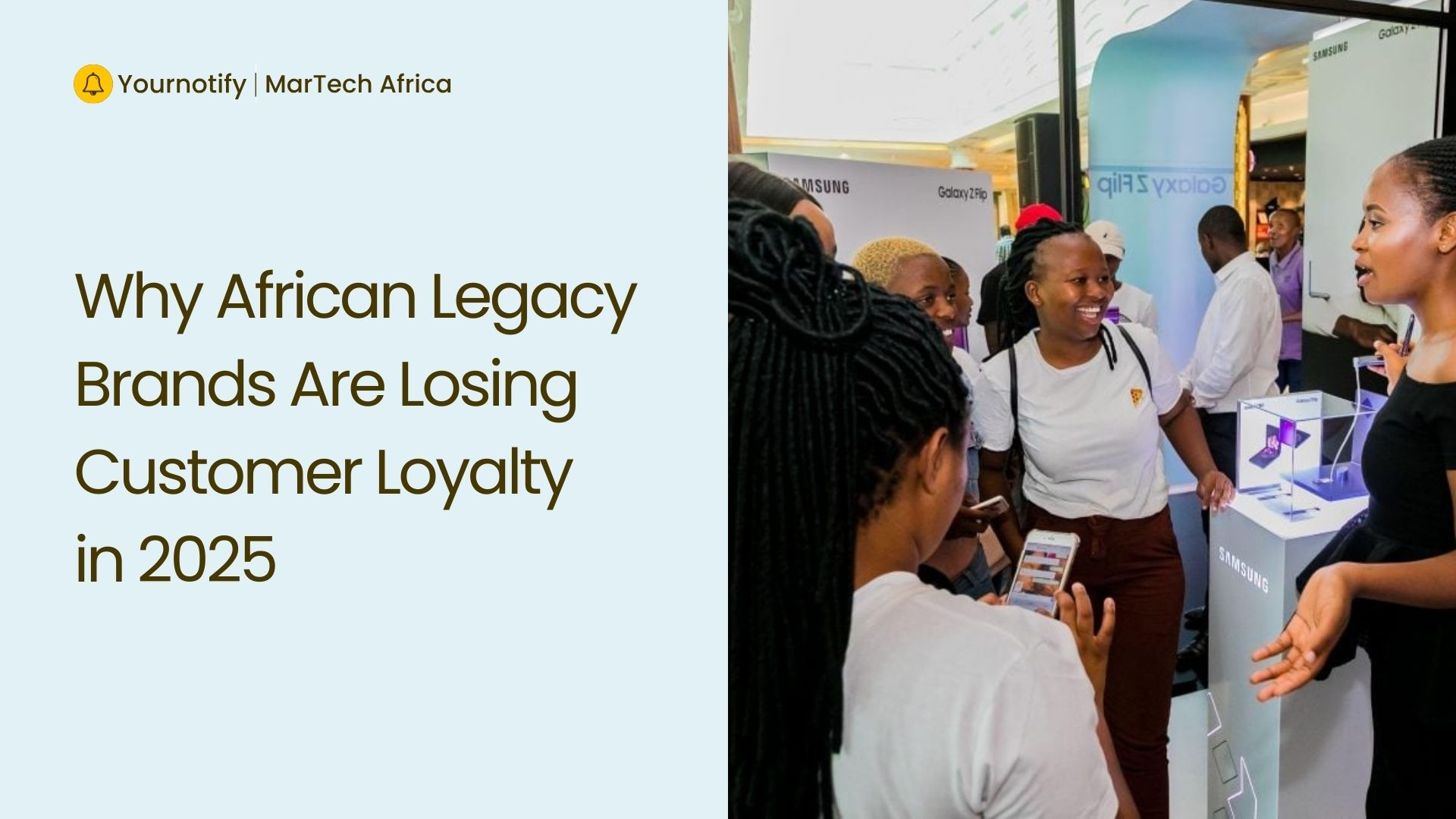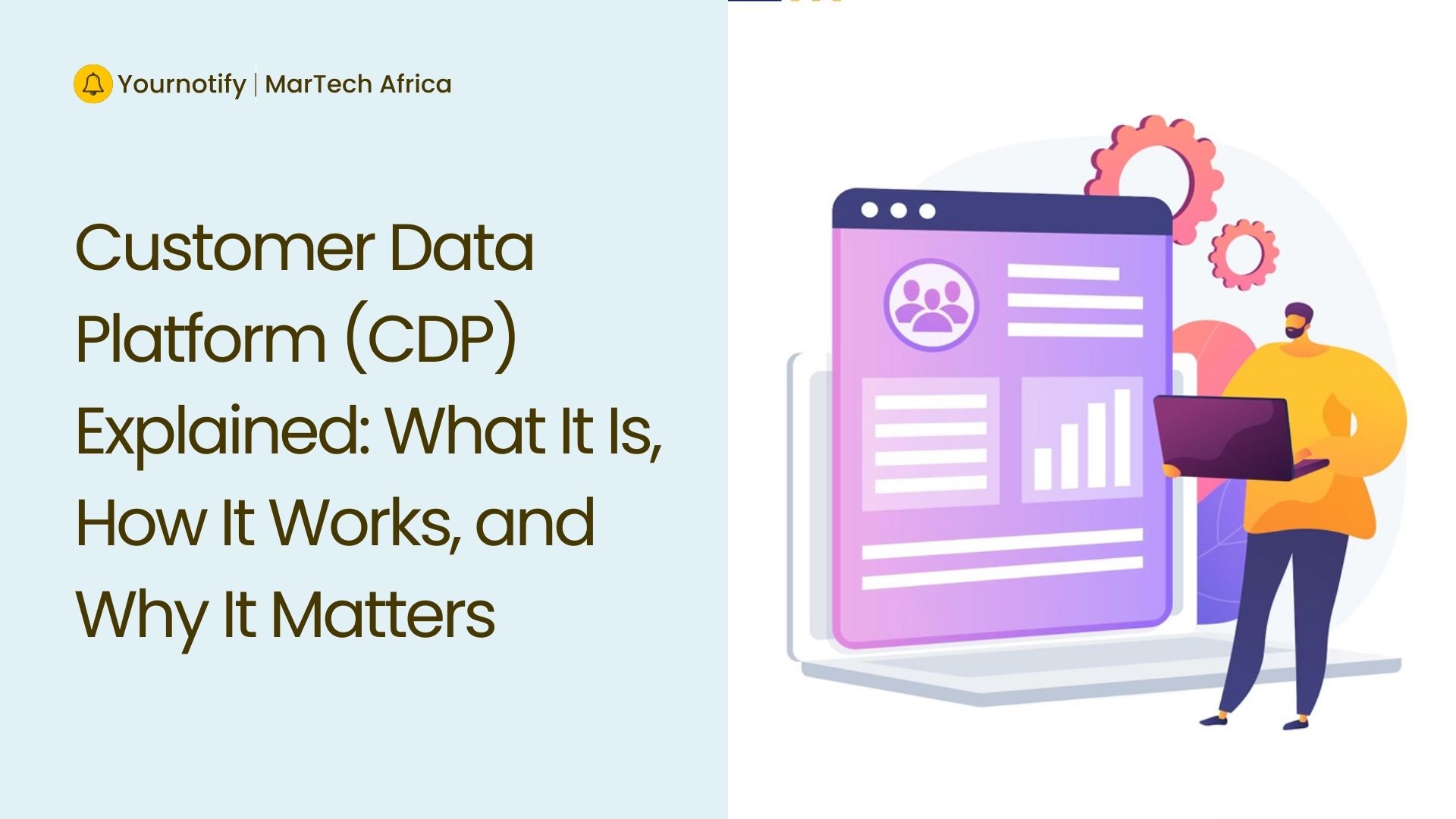In Africa’s rapidly evolving marketplace, legacy brands once stood as cultural icons, commanding deep trust,…

Customer Retention Strategies That Work in African Markets (2025 Guide)
In today’s competitive business environment, acquiring new customers is becoming increasingly expensive. For African businesses, where unique market dynamics like low customer loyalty, economic volatility, and infrastructural gaps exist, customer retention strategies must be put in place to help scale the business.
Retaining existing customers drives long-term profitability and brand advocacy. Research by Bain & Company shows that increasing customer retention rates by just 5% can boost profits by 25% to 95%. This is especially important in African markets, where trust, relationship-building, and local context play a major role in shaping consumer behavior.
Here are 8 Customer Retention Strategies that work in African markets
Personalization and Customer-Centric Experiences
One of the strongest ways to retain customers in Africa is by creating personalized experiences. African consumers are highly diverse, and their purchasing habits are shaped by cultural, linguistic, and regional differences. Businesses that recognize and adapt to these variations are more likely to keep customers coming back.
E-commerce platforms like Jumia, for example, personalize recommendations based on browsing history and location. Fintech firms such as Flutterwave and Paystack tailor their services to suit local realities by providing regional payment methods. When customers feel that a brand understands their unique needs, they are far more likely to remain loyal.
Personalized birthday discounts, culturally relevant campaigns, and even location-based offers are simple but effective ways of showing customers that they are valued as individuals rather than just numbers.
Loyalty Programs That Reward Everyday Behavior
Another proven customer retention strategy in African markets is the use of loyalty programs. Unlike traditional models in other regions, African consumers respond more positively to simple, practical, and accessible rewards. Mobile operators such as MTN have tapped into this through initiatives like Y’ello Rewards, while leading banks have introduced cashback and point-based systems to keep customers engaged.
The rise of platforms that offer digital reward services like Yournotify has also made it easier for businesses to design loyalty programs tailored to the African context. Reward system resonates strongly in African markets where consumers place high value on practical benefits. By making loyalty programs simple, transparent, and directly relevant to people’s daily lives, businesses can significantly increase customer retention.
Exceptional Customer Service
Customer service is another powerful driver of retention in African markets. In many industries, poor service is still a common complaint, and businesses that invest in fast, responsive, and empathetic support quickly stand out. Companies like Interswitch and GTBank have built strong reputations not only for their products but also for the quality of their customer support. These brands demonstrate that when customers feel heard and supported, they are more likely to stay loyal.
For African businesses, investing in customer service means training staff regularly, implementing customer relationship management (CRM) systems, and offering support through multiple channels, including WhatsApp, phone calls, and email. Customers want to know that if something goes wrong, they can count on quick and effective resolution. This assurance builds trust, which in turn fosters loyalty.
Building Trust Through Transparency
Trust is one of the most critical factors influencing customer retention across Africa. In markets where fraud, hidden charges, and poor service delivery are common challenges, brands that prioritize transparency earn long-term loyalty. For instance, fintech firms often publish transparent fee structures and ensure users know exactly what they are paying for. Logistics providers like GIG Logistics have also gained loyalty by offering real-time delivery tracking, which reassures customers that their purchases are safe.
Transparency is is also about communication. When businesses openly inform customers about potential delays, product shortages, or service changes, they demonstrate honesty. Customers are much more likely to forgive mistakes if they feel a brand has been upfront with them rather than trying to conceal the truth.
Leveraging Community and Cultural Connections
African consumers are deeply community-oriented, and businesses that tap into this social fabric often find it easier to retain customers. Brands such as Coca-Cola Africa and Dangote Group have consistently engaged in community initiatives, sponsorships, and social programs that align with cultural values. By doing so, they go beyond transactions and become part of the consumer’s lifestyle.
A strong community connection means that customers see the brand not only as a provider of goods or services but also as a partner that understands their culture and contributes positively to their society. This creates an emotional bond that makes it harder for competitors to lure them away.
Digital Engagement and Automation
The rapid growth of mobile penetration and internet usage in Africa has also transformed customer retention strategies. Digital engagement tools such as chatbots, mobile apps, and automated messaging systems are helping businesses maintain regular communication with customers. E-commerce platforms like Konga, for instance, use SMS and email automation to keep customers updated on orders, restocks, and promotions.
However, digital engagement must strike the right balance. Automation is effective for routine updates and reminders, but it should not replace the human touch in situations where customers need empathy or complex problem-solving.
African customers appreciate efficiency, but they also value genuine human interaction. Brands that successfully integrate both are better positioned to keep their customers engaged and loyal.
Continuous Value Creation
Customer retention is about consistently delivering value. African consumers stay loyal to brands that not only meet their immediate needs but also continue to educate, inform, or empower them. Platforms like PiggyVest provide more than just savings solutions; they also educate users on financial literacy through blogs, newsletters, and webinars. By doing this, they position themselves as partners in their customers’ growth journeys.
This approach keeps customers invested in the brand because they feel they are gaining more than a product or service, they are gaining knowledge, empowerment, and opportunities. Continuous value creation makes it much harder for competitors to replace you in your customers’ lives.
Listening and Acting on Feedback
Finally, businesses that retain customers in Africa are those that actively listen and respond to customer feedback. Airlines such as Ethiopian Airlines frequently conduct surveys to improve service delivery, while smaller businesses use social media polls to gather insights from their communities.
When customers see that their opinions matter and that businesses actually act on their suggestions, they develop stronger loyalty. A consistent feedback loop ensures that companies remain aligned with the evolving needs and expectations of their market.
In African markets, customer retention strategies require more than discounts or flashy campaigns. They are built on personalization, trust, cultural alignment, community connections, and consistent value delivery.
Customers in Africa want to feel valued, understood, and supported. Businesses that can consistently deliver on those expectations will not only retain customers but also transform them into lifelong advocates. In 2025 and beyond, this will be the true competitive edge.
Related Content
Customer Engagement vs. Customer Experience: What’s the Difference?


